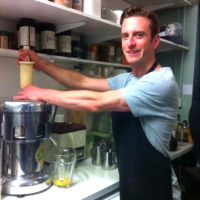BPA, or bisphenol A, is a chemical that has been widely used in the production of plastics and resins for many years. However, it is a known endocrine disruptor, meaning that it can interfere with the body’s natural hormone production. This has raised significant concerns about the potential health risks associated with BPA exposure.
In this article, we will delve into the topic is your juicer BPA free or not, discuss its potential dangers, and provide valuable information on how to choose a BPA-free juicer to ensure your well-being.
A Complete Guide: Is Your Juicer BPA Free?
The Dangers of BPA in Juicers
BPA has been linked to a range of health problems, including reproductive issues, heart disease, and even cancer. As juicers often come into contact with various fruits and vegetables, the possibility of BPA leaching into the juice during the juicing process poses a potential health risk to consumers.
Recent awareness about the dangers of BPA has prompted many manufacturers to take action and phase out its use in their products. However, it’s crucial to be aware that some juicers in the market still contain BPA in their plastic components.
How to Choose a BPA Free Juicer
Choosing a BPA-free juicer is essential to minimize your exposure to this harmful chemical. Here are some guidelines to help you select a juicer that is BPA-free:
- Check the Product Description: Before purchasing a juicer, carefully read the product description. Reputable juicer manufacturers often explicitly state whether their products are BPA-free or not.
- Look for the BPA-Free Label: Many BPA-free juicers come with a prominent label on their packaging, indicating that they are free from this harmful chemical.
- Ask the Manufacturer: If you’re uncertain about a juicer’s BPA status, don’t hesitate to contact the manufacturer directly. They should be able to provide you with the necessary information.
BPA Free Juicers on the Market
Several BPA-free juicers are available, ensuring you can still enjoy fresh, healthy juices without worrying about harmful chemical exposure. Here are some popular options:
- Omega NC800HD Slow Masticating Juicer: A reliable and efficient masticating juicer, designed to extract maximum nutrients from fruits and vegetables without compromising your health.
- Kuvings B6000 Whole Slow Juicer: This juicer stands out for its wide feed chute and powerful motor, allowing you to quickly and effortlessly juice large quantities of produce.
- Aicok Slow Masticating Juicer: Known for its quiet operation and exceptional juice yield, this BPA-free juicer is perfect for those seeking a peaceful juicing experience.
- Ninja Professional Plus Cold Press Juicer: Combining power and convenience, this juicer efficiently extracts juice while keeping harmful BPA at bay.
- Breville Juice Fountain Plus: A high-speed juicer that is BPA-free, making it a great choice for those who value speed and convenience in their juicing routine.
Additional Tips for Choosing a BPA Free Juicer
In addition to looking for BPA-free labels and checking product descriptions, here are some extra tips to ensure your juicer is safe:
- Opt for juicers made from stainless steel or glass, as these materials are naturally BPA-free.
- Avoid juicers with plastic components that lack clear labeling of being BPA-free.
- Always read the product description thoroughly to confirm the juicer’s BPA status.
- If in doubt, contact the manufacturer and inquire about the juicer’s BPA-free status.
FAQ Regarding BPA & Juicer
What is BPA and why should I be concerned about it in my juicer?
BPA is a toxic chemical commonly used in the production of plastic products, including some juicers. It has been linked to health issues such as hormonal imbalances, obesity, and heart disease, making it important to choose BPA-free products whenever possible.
How can I tell if my juicer is BPA-free?
ou can look for juicers that are labeled as BPA-free, or made from materials that are naturally free of BPA, such as stainless steel or glass. Additionally, you can look for certifications, such as the NSF International certification, which verifies that a product is free of harmful chemicals and contaminants.
Are all stainless steel juicers BPA-free?
Not all stainless steel juicers are BPA-free. It is important to read product labels and research different products to determine if they are BPA-free.
Are there any certifications that guarantee a juicer is BPA-free?
Yes, organizations such as the NSF International provide certifications for products that are free of harmful chemicals and contaminants, including BPA.
What other factors should I consider when choosing a BPA-free juicer?
In addition to being BPA-free, other factors to consider when choosing a juicer include the size and design, the type of motor and blades, and any additional features, such as a built-in strainer or frother.
Conclusion
BPA is a harmful chemical that has been used in plastics and resins for decades, and its potential health risks have become a growing concern. When choosing a juicer, always prioritize your health and select a BPA-free option to minimize exposure to this dangerous substance. By following the guidelines provided and considering popular BPA-free juicer options, you can enjoy fresh, nutritious juices while safeguarding your well-being and that of your family.
Remember, your health is worth the investment in a BPA-free juicer. Happy juicing!

